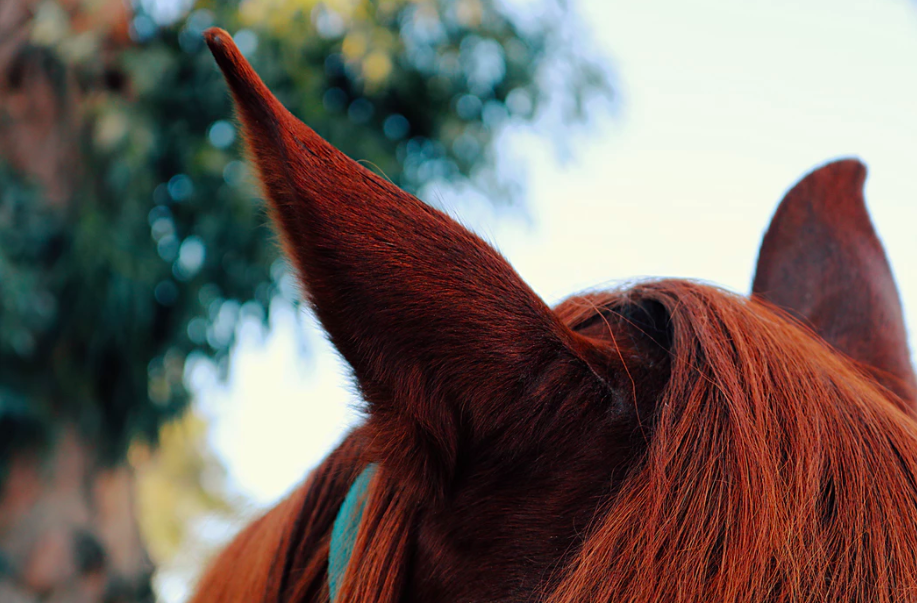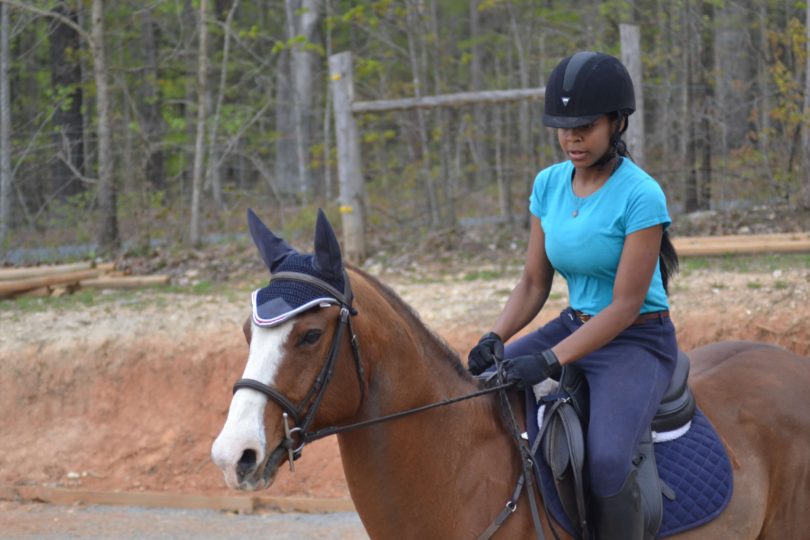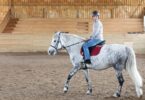If horses don’t make you at least a bit cautious, you’re not paying attention.
Horses are some of the most beautiful animals out there, says the latest informal poll among my barn mates. But, they’re also big creatures with hard hooves, long legs, swishing tails, lots of teeth, and they can really move quickly. As a , horses are quick to from fast or unexpected movements. Though we aren’t saying you should be fearful of horses, you should be mindful.
Nerves are your brain’s way of warning you about potentially dangerous situations. That doesn’t mean bad things will happen, though. The more you understand how horses communicate, how to read their body language, and how to move around them safely, the less nervous you’ll feel.
You can break the “Horse Code” more easily than you might think. We can help!
Thanks to Sarah Harris for our feature photo!
Watch those ears
Keeping an eye on your horse’s ears will give you a lot of valuable information. They tell you where a horse is looking, what they’re listening too, and are a pretty reliable indicator of mood.
The next time you get a chance to watch your horse around his pals in the pasture or barn, pay attention to what his ears are doing.
If they’re pricked forward, they’re looking ahead, with their focus on something in front of them. (If he sees you with a carrot, those ears will be pointing straight at you!)
Ears move around as the horse shifts his attention — kind of like little antennae. They may flick towards another horse that’s approaching, for example. If a different horse is walking behind him, the ears may flip backward.

Watch the ears to know what your horse is paying attention to.
To avoid spooking a horse, make sure his ears are pointing at you before getting too close or touching him. An can make sudden moves – and make you nervous.
While you’re watching horses observe their , see if you can spot the way that they’ll lay their ears back to show that they are unhappy or angry with another horse. This expression is another sign that they’re about to make a sudden movement.
If you see your horse pinning their ears back, be alert and look for what’s bothering them.
Now that you know where your horse is looking, and what they’re paying attention to, you have a lot more information about what they might do next, which should help make you a more .
Plus, head over to our Riding Mindset FAQs for more information:
- How do you overcome fear after falling off a horse?
- Can horses sense fear and anxiety?
- How can I calm my nerves before horse riding?
- Will an air vest help if I’m scared to ride my horse?
- What are some horse riding confidence exercises?
- I lost my nerve for horse riding. Now what?
- How do I kick my fear of horses?
- Myth busters: Can horses sense fear or not?
Want to read a detailed account of how we manage our nerves? Check out our blog about 32 things you can do today to calm your riding nerves forever.
Watch for signs that your horse is nervous
As discussed, part of your fear likely stems from not understanding your horse well enough to predict his behavior.
If your horse is relaxed, he’s not likely to be reactive, fidgety, or do anything to make you unsure around him. If your horse has soft eyes, a nose that is smooth and wrinkle-free, and relaxed lips, he’s not tense or anxious. His ears may be flicking slowly around, and his head is held down low and close to you.
If your horse looks relaxed, then you can relax too!
This video shows a Quarter Horse displaying a lot of the body language:
[youtube https://www.youtube.com/watch?v=l2p8pwIWZAM]Once you get better at “reading” your horse, you’ll understand that he’s usually calmly watching the world go by and not looking to cause you any problems. You’ll also be able to get advance notice of when he might make a sudden move.
Remember, if you’re unsure of your safety around a horse — or have had a before, always consult a trainer, riding instructor, and/or veterinarian to help troubleshoot bad behaviors.
P.S. Enjoy this article? Trot on over to:
- 32 Things you can do today to calm your riding nerves forever
- Why horses are dangerous (but worth the risk!)
- Scared to ride your horse? Get your mojo back
- How can I calm my nerves before horse riding?
- What are some ways to gain confidence riding horses
- Safe or sorry: how often to replace horseback riding helmets
- Get your asana in the saddle: 5 yoga tips for equestrians








